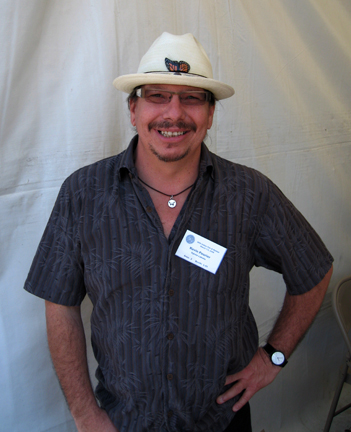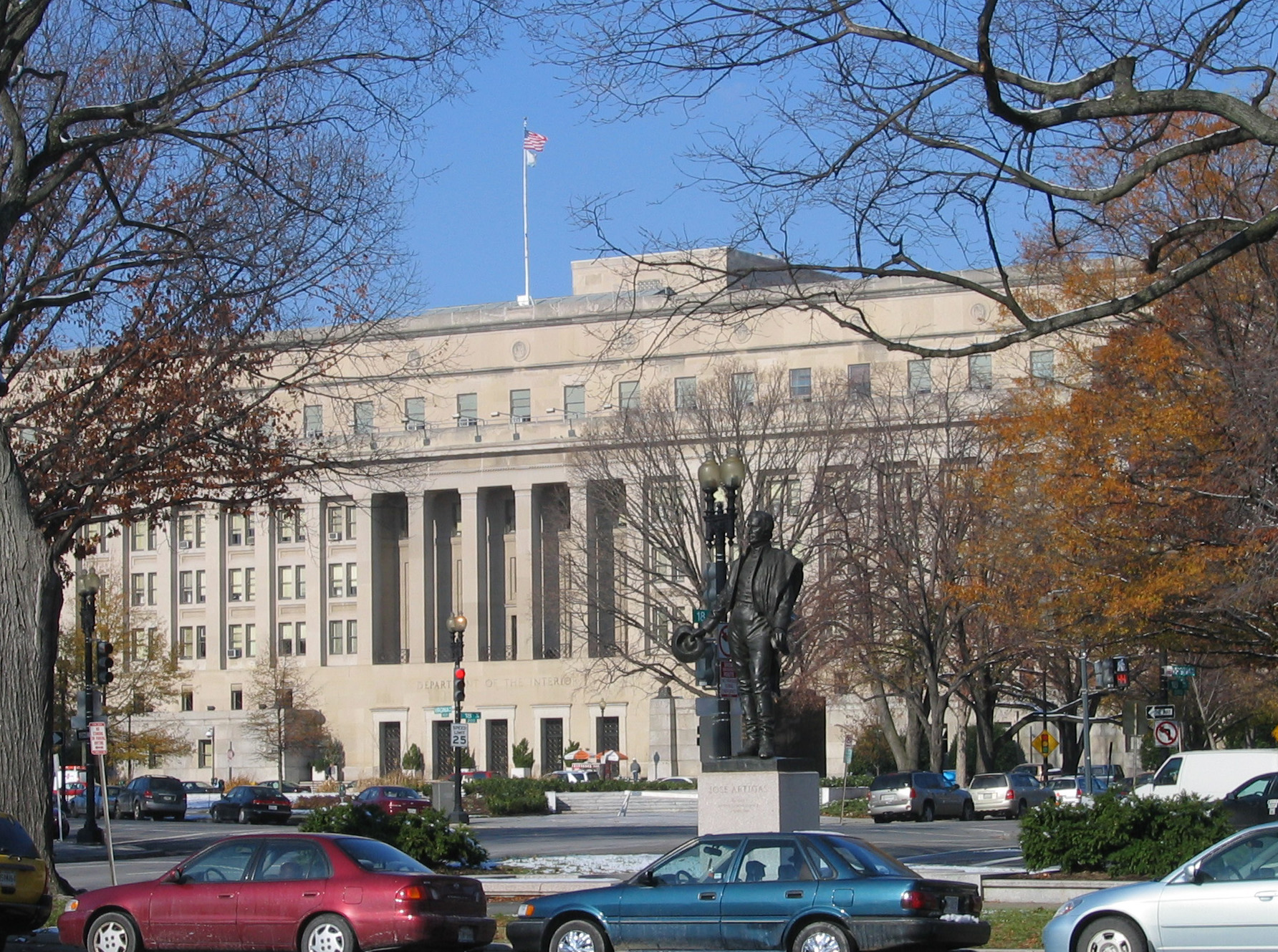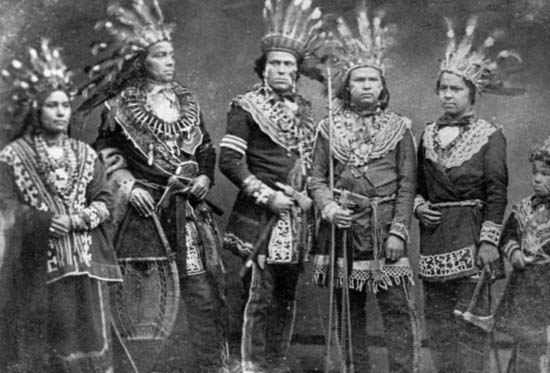|
Anna Mae Pictou Aquash
Annie Mae Aquash (Mi'kmaq name ''Naguset Eask'') (March 27, 1945 – mid-December 1975 ) was a First Nations activist and Mi'kmaq tribal member from Nova Scotia, Canada. Aquash moved to Boston in the 1960s and joined other First Nations and Indigenous Americans focused on education and resistance, and police brutality against urban Indigenous peoples. She was part of the American Indian Movement, participated in several occupations, and participated in the 1973 Wounded Knee incident at the Pine Ridge Indian Reservation, United States. Aquash also participated in the 1972 Trail of Broken Treaties and occupation of the Department of Interior headquarters in Washington, DC. In the following years, Aquash was active in protests to draw positive government action and acknowledgement of First Nations and Native American civil rights in Canada and Wisconsin. After Aquash disappeared in late December 1975, there were rumors she had been killed. An FBI report by Special Agent David ... [...More Info...] [...Related Items...] OR: [Wikipedia] [Google] [Baidu] |
Shubenacadie, Nova Scotia
Shubenacadie () is a village located in Hants County, in central Nova Scotia, Canada. As of 2021, the population was 411. The name for the Mi'kmaw territory in which present-day Shubenacadie is located and the origin of its name is the Mi'kmaw word ''Sipekne'katik'', which "place abounding in groundnuts" or "place where the wapato grows." Historically, the Sipekne'katik region was a large stretch of territory that covered central Nova Scotia. History Father Louis-Pierre Thury sought to gather the Mi'kmaq of Peninsular Nova Scotia into a single settlement around Shubenacadie as early as 1699. Not until the Dummer's War between the New France-aligned Wabanaki Confederacy and English New England from 1722–1725, however, did Antoine Gaulin, a Quebec-born missionary, erect a permanent mission at Shubenacadie (adjacent to Snides Lake and close to the former Residential school). He also made seasonal trips to Cape Sable, LaHave, and Mirlegueche. [...More Info...] [...Related Items...] OR: [Wikipedia] [Google] [Baidu] |
Thelma Conroy-Rios
Thelma Conroy-Rios was a Native American activist. She is perhaps best known for her involvement in the Wounded Knee incident and for her involvement in the murder of fellow American Indian Movement activist Anna Mae Aquash. Personal life Between 1974 and 1975, Thelma Conroy-Rios allowed a fellow male activist Harry Hill to live with her. Conroy-Rios and Hill were said to be involved in a common law marriage. Although identified as a cop by ex-wife Thelma Conroy-Rios, Hill's role as a law official is disputed. Conroy-Rios identified Hill as having provoked the Custer Courthouse Incident Riot that unfolded in 1973 following a one-day jail sentence of murderer Darld Schmitz, a White Air Force veteran in the murder of Wesley Bad Heart Bull. According to Conroy-Rios, "He started it all, Dave. He provoked the riot. He was right there. He told me so, proudly, several times. He instigated that courtroom riot too. I was there. I saw him start it, punching a cop. At the time e ... [...More Info...] [...Related Items...] OR: [Wikipedia] [Google] [Baidu] |
Dennis Banks
Dennis Banks (April 12, 1937, in Ojibwe – October 29, 2017) was a Native American activist, teacher, and author. He was a longtime leader of the American Indian Movement, which he co-founded in Minneapolis, Minnesota in 1968 to represent urban Indians. Early life Born on Leech Lake Indian Reservation in northern Minnesota in 1937, Dennis Banks was also known as ''Nowa Cumig'' (''Naawakamig'' in the Ojibwe Double Vowel System). Banks's mother abandoned him to be raised by grandparents. But, he was separated from that family, too, when he was taken at the age of 5 to live at a federal Indian boarding school, run by the Bureau of Indian Affairs (now the Bureau of Indian Education). Its goals were to "civilize" and educate Native American children in English and mainstream culture, in effect, to assimilate them. Children were prohibited to speak their native languages or practice their traditions. Vocational training was emphasized. Banks ran away often, returning to live wi ... [...More Info...] [...Related Items...] OR: [Wikipedia] [Google] [Baidu] |
Douglas Durham
Douglas may refer to: People * Douglas (given name) * Douglas (surname) Animals *Douglas (parrot), macaw that starred as the parrot ''Rosalinda'' in Pippi Longstocking *Douglas the camel, a camel in the Confederate Army in the American Civil War Businesses * Douglas Aircraft Company * Douglas (cosmetics), German cosmetics retail chain in Europe * Douglas (motorcycles), British motorcycle manufacturer Peerage and Baronetage * Duke of Douglas * Earl of Douglas, or any holder of the title * Marquess of Douglas, or any holder of the title * Douglas Baronets Peoples * Clan Douglas, a Scottish kindred * Dougla people, West Indians of both African and East Indian heritage Places Australia * Douglas, Queensland, a suburb of Townsville * Douglas, Queensland (Toowoomba Region), a locality * Port Douglas, North Queensland, Australia * Shire of Douglas, in northern Queensland Belize * Douglas, Belize Canada * Douglas, New Brunswick * Douglas Parish, New Brunswick * Douglas, O ... [...More Info...] [...Related Items...] OR: [Wikipedia] [Google] [Baidu] |
Menominee
The Menominee (; mez, omǣqnomenēwak meaning ''"Menominee People"'', also spelled Menomini, derived from the Ojibwe language word for "Wild Rice People"; known as ''Mamaceqtaw'', "the people", in the Menominee language) are a federally recognized nation of Native Americans. Their land base is the Menominee Indian Reservation in Wisconsin. Their historic territory originally included an estimated in present-day Wisconsin and the Upper Peninsula of Michigan. The tribe currently has about 8,700 members. Federal recognition of the tribe was terminated in the 1960s under policy of the time which stressed assimilation. During that period, they brought what has become a landmark case in Indian law to the United States Supreme Court, in '' Menominee Tribe v. United States'' (1968), to protect their treaty hunting and fishing rights. The Wisconsin Supreme Court and the United States Court of Claims had drawn opposing conclusions about the effect of the termination on Menominee hu ... [...More Info...] [...Related Items...] OR: [Wikipedia] [Google] [Baidu] |
Wallace Black Elk
Wallace may refer to: People * Clan Wallace in Scotland * Wallace (given name) * Wallace (surname) * Wallace (footballer, born 1986), full name Wallace Fernando Pereira, Brazilian football left-back * Wallace (footballer, born 1987), full name Wallace Reis da Silva, Brazilian football centre-back * Wallace (footballer, born May 1994), full name Wallace Oliveira dos Santos, Brazilian football full-back * Wallace (footballer, born October 1994), full name Wallace Fortuna dos Santos, Brazilian football centre-back * Wallace (footballer, born 1998), full name Wallace Menezes dos Santos, Brazilian football midfielder Fictional characters * Wallace, from ''Wallace and Gromit'' * Wallace (''Pokémon'') * Wallace (''Sin City'') * Wallace (''The Wire'') * Wallace Breen, from ''Half-Life 2'' * Wallace Fennel, from ''Veronica Mars'' * Wallace Footrot, from ''Footrot Flats'' * Eli Wallace, from ''Stargate Universe'' * Wallace, from "The Hangover Part III" * Wallace the Brave, from the co ... [...More Info...] [...Related Items...] OR: [Wikipedia] [Google] [Baidu] |
Oglala Lakota
The Oglala (pronounced , meaning "to scatter one's own" in Lakota language) are one of the seven subtribes of the Lakota people who, along with the Dakota people, Dakota, make up the Sioux, Očhéthi Šakówiŋ (Seven Council Fires). A majority of the Oglala live on the Pine Ridge Indian Reservation in South Dakota, the eighth-largest Indian reservation, Native American reservation in the United States. The Oglala are a List of federally recognized tribes, federally recognized tribe whose official title is the Oglala Sioux Tribe (previously called the Oglala Sioux Tribe of the Pine Ridge Reservation, South Dakota). However, many Oglala reject the term "Sioux" due to the hypothesis (among Sioux#Names, other possible theories) that its origin may be a derogatory word meaning "snake" in Ojibwe language, the language of the Ojibwe, who were among the historical enemies of the Lakota. They are also known as Oglála Lakhóta Oyáte. History Oglala elders relate stories about the orig ... [...More Info...] [...Related Items...] OR: [Wikipedia] [Google] [Baidu] |
Bureau Of Indian Affairs
The Bureau of Indian Affairs (BIA), also known as Indian Affairs (IA), is a United States federal agency within the Department of the Interior. It is responsible for implementing federal laws and policies related to American Indians and Alaska Natives, and administering and managing over of land held in trust by the U.S. federal government for Indian Tribes. It renders services to roughly 2 million indigenous Americans across 574 federally recognized tribes. The BIA is governed by a director and overseen by the assistant secretary for Indian affairs, who answers to the secretary of the interior. The BIA works with tribal governments to help administer law enforcement and justice; promote development in agriculture, infrastructure, and the economy; enhance tribal governance; manage natural resources; and generally advance the quality of life in tribal communities. Educational services are provided by Bureau of Indian Education—the only other agency under the assistan ... [...More Info...] [...Related Items...] OR: [Wikipedia] [Google] [Baidu] |
North American Indian Center Of Boston
The North American Indian Center of Boston, Inc. (NAICOB) is a nonprofit organization located in Jamaica Plain, Massachusetts, a neighborhood of Boston, which provides assistance to American Indians, Native Canadians, Alaska Natives, Native Hawaiians, and other indigenous peoples of North America. According to its website, the organization's mission is as follows: Boston Indian Council The NAICOB began as the Boston Indian Council (BIC) on October 20, 1970, following meetings in 1969. During this period the Native American population in Boston and other cities was growing rapidly, and urban centers like the BIC arose to provide health care and other services. Founding members of the BIC included writer Mildred Noble, American Indian psychologist Carolyn Attneave, Canadian activist Anna Mae Aquash and the artist Philip Young, both of whom were of the Micmac nation. Shirley Moore Mills ( Mashpee Wampanoag) served as secretary to the Board of Directors. In 1970, BIC joined with ... [...More Info...] [...Related Items...] OR: [Wikipedia] [Google] [Baidu] |
Mayflower II
''Mayflower II'' is a reproduction of the 17th-century ship ''Mayflower'', celebrated for transporting the Pilgrims to the New World in 1620. "Press Kit - Mayflower X" (with history of the ''Mayflower''), Plimoth Plantation Museum, 2004, ''Plimoth.org'' webpage: PlimothOrg-MayflowerBG The reproduction was built in Devon, England during 1955–1956, in a collaboration between Englishman Warwick Charlton and Plimoth Patuxet (at the time known as Plimoth Plantation), a living history museum. The work drew upon reconstructed ship blueprints held by the American museum, along with hand construction by English shipbuilders using traditional methods. ''Mayflower II'' was sailed from Plymouth, Devon on April 20, 1957, recreating the original voyage across the Atlantic Ocean, under the command of Alan Villiers. According to the ship's log, ''Mayflower II'' arrived at Plymouth on June 22; it was towed up the East River into New York City on Monday, July 1, 1957, where V ... [...More Info...] [...Related Items...] OR: [Wikipedia] [Google] [Baidu] |
Indigenous Peoples Of The Americas
The Indigenous peoples of the Americas are the inhabitants of the Americas before the arrival of the European settlers in the 15th century, and the ethnic groups who now identify themselves with those peoples. Many Indigenous peoples of the Americas were traditionally hunter-gatherers and many, especially in the Amazon basin, still are, but many groups practiced aquaculture and agriculture. While some societies depended heavily on agriculture, others practiced a mix of farming, hunting, and gathering. In some regions, the Indigenous peoples created monumental architecture, large-scale organized cities, city-states, chiefdoms, states, kingdoms, republics, confederacies, and empires. Some had varying degrees of knowledge of engineering, architecture, mathematics, astronomy, writing, physics, medicine, planting and irrigation, geology, mining, metallurgy, sculpture, and gold smithing. Many parts of the Americas are still populated by Indigenous peoples; some countries have ... [...More Info...] [...Related Items...] OR: [Wikipedia] [Google] [Baidu] |
Ojibwe
The Ojibwe, Ojibwa, Chippewa, or Saulteaux are an Anishinaabe people in what is currently southern Canada, the northern Midwestern United States, and Northern Plains. According to the U.S. census, in the United States Ojibwe people are one of the largest tribal populations among Native American peoples. In Canada, they are the second-largest First Nations population, surpassed only by the Cree. They are one of the most numerous Indigenous Peoples north of the Rio Grande. The Ojibwe population is approximately 320,000 people, with 170,742 living in the United States , and approximately 160,000 living in Canada. In the United States, there are 77,940 mainline Ojibwe; 76,760 Saulteaux; and 8,770 Mississauga, organized in 125 bands. In Canada, they live from western Quebec to eastern British Columbia. The Ojibwe language is Anishinaabemowin, a branch of the Algonquian language family. They are part of the Council of Three Fires (which also include the Odawa and Potawatomi) and ... [...More Info...] [...Related Items...] OR: [Wikipedia] [Google] [Baidu] |





_2007.jpg)
